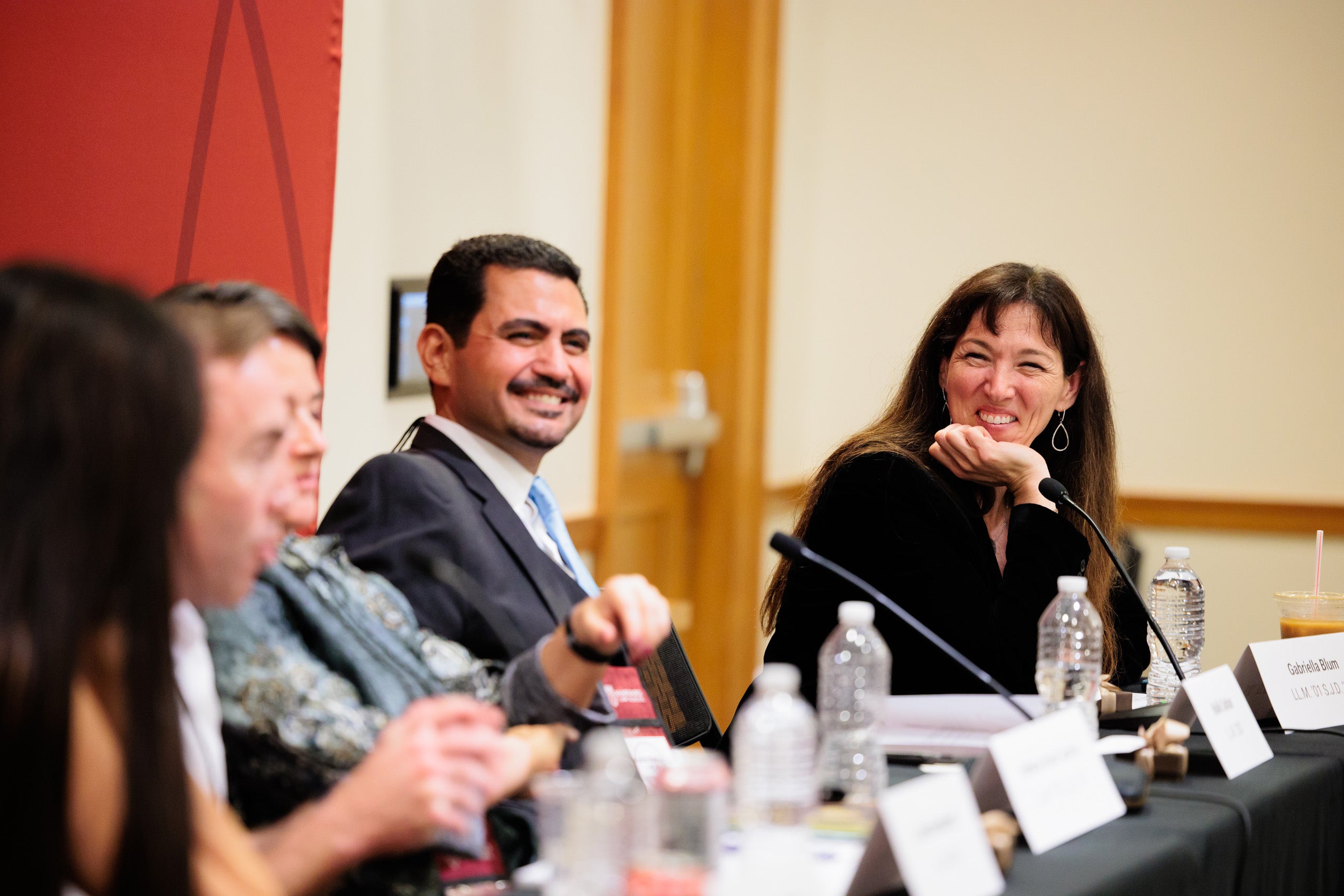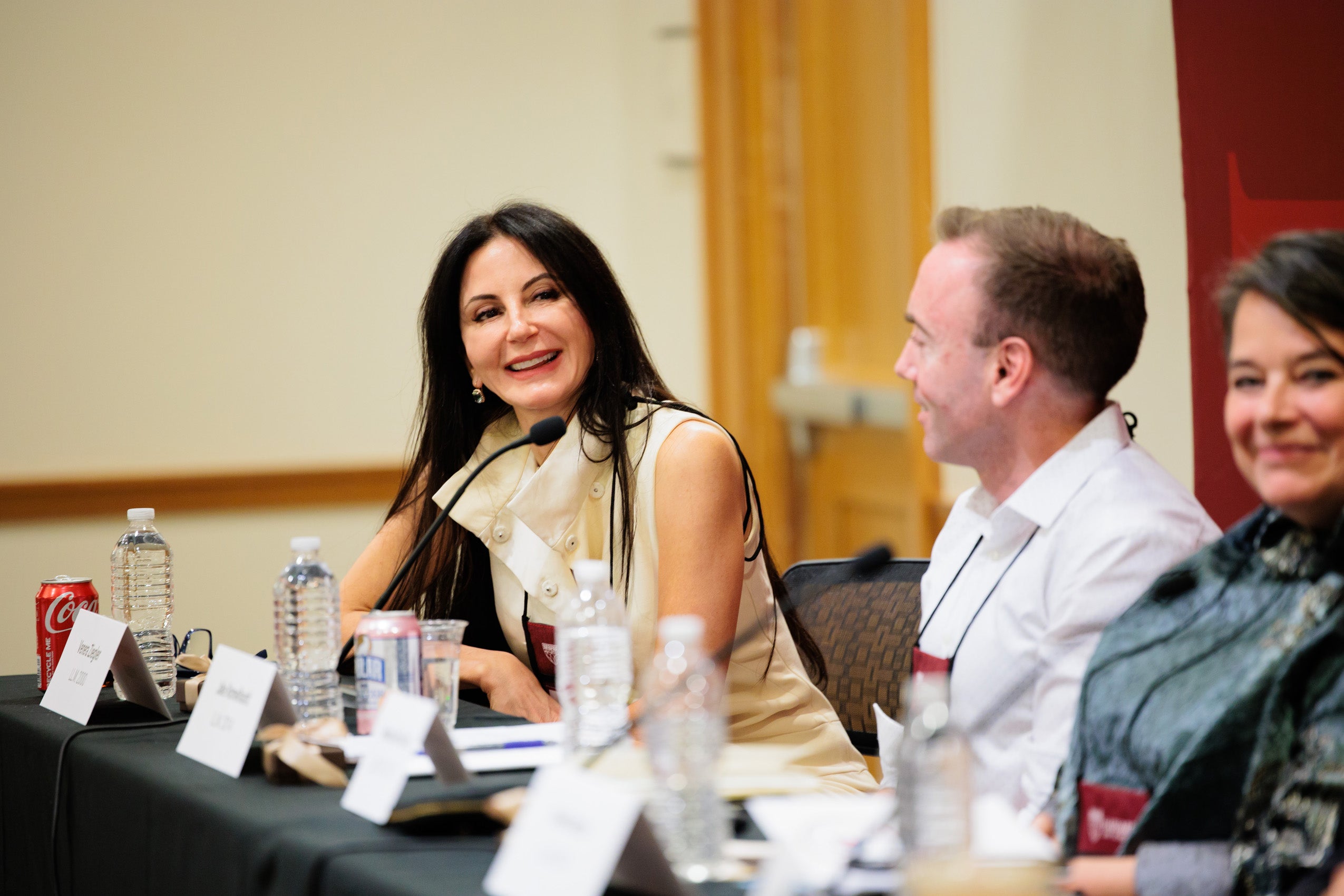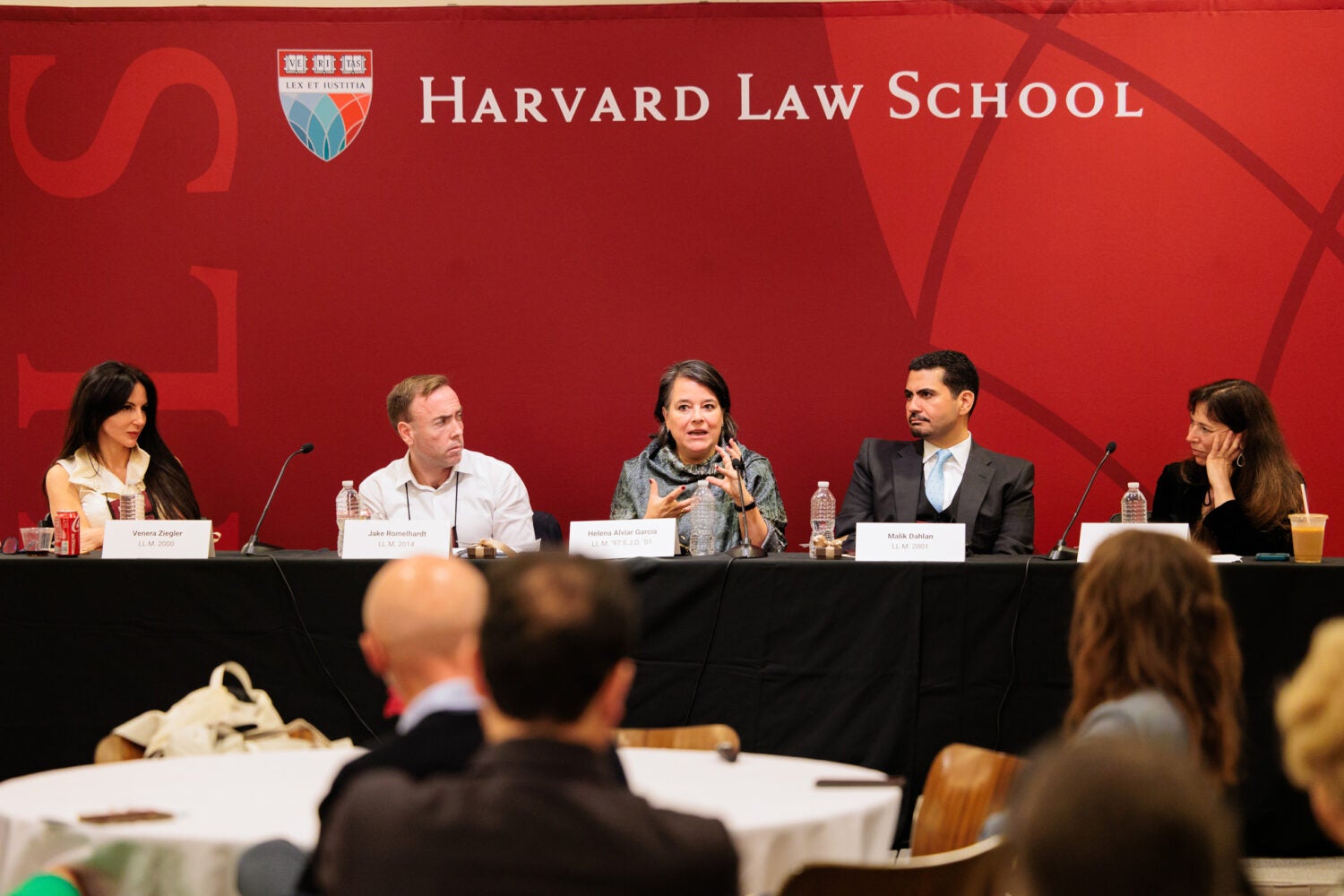On Sept. 27, at the end of the first day of the centennial celebration of Harvard Law School’s LL.M. program, Professor Gabriella Blum LL.M. ’01 S.J.D. ’03, told the audience that they had spent the day hearing about the many things that unite people who come to the law school. “But inevitably there are some differences in a cohort of 200,” she said. Over the next hour, Blum, vice dean for the Graduate Program and International Legal Studies, and four alumni discussed their own time at the school and how bridging difference affected their thinking and their careers.
Helena Alviar Garcia LL.M. ’97 S.J.D. ’01, a professor at Sciences Po Law School, Paris, said two of the things she learned in doing her LL.M. with people from so many different countries are the power of curiosity and the importance of context. Alviar, a Colombian academic who served as dean and professor at Los Andes Law school in Bogota and has taught all over the world, says there are so many ways to think about law and legal solutions. “Something that may work in one context won’t work in another one, or that, in one context, it’s going to have dark sides or unexpected consequences that you would never think of.”

Malik Āl Dahlan LL.M. ’01, who grew up in Mecca, Saudi Arabia, is a mediator, law professor, and U.N. constitutional expert who works to support international diplomacy, energy transition, and climate finance. He told the audience that Harvard Law School offers its LL.M. students such a diversity of thinking that you arrive in Cambridge, you immerse yourself, “and all of a sudden the internationalist is born.”
Venera Ziegler LL.M. ’00, a partner at the Investment Funds group at DLA Piper, came to the law school from Sofia, Bulgaria. Her perspective was very influenced by the fact that she grew up in a communist state, “behind the Iron Curtain, with very little knowledge about the U.S.” When she started studying law in Sofia, it was the year that the Communist Party fell. She wanted to pursue legal studies, she said, in part because of the way her family had been treated under Bulgaria’s one-party regime. But she knew she eventually wanted to study outside of Bulgaria as well, so she set about teaching herself English and applied to schools in the U.S. and Europe.
She described her initial experience of the openness of other students at Harvard as a huge culture shock. “Growing up in a small country behind the Iron Curtain, you always had to worry who might know what, and it was just too dangerous,” Ziegler said.
She said that studying with people, including J.D. students, who expressed their ideas so freely and who debated with professors, had a big impact. Getting to the point where she, too, could speak up in class was an important step.

Yet she also remembers that at first the environment made her question whether she belonged. “But I realized very quickly that a lot of LL.M. students feel that way,” Ziegler said. In the end, her class became so close that they became family. She still has friendships with classmates that she cherishes deeply, and she and they remain involved with the school.
Blum asked other panelists whether they had “a difficult moment when something was lost in translation, a tough moment to get through.”
Capt. Jacob Romelhardt LL.M. ’14, director of the National Security Law Division of the U.S. Navy Office of the Judge Advocate General, recalled that when he came to law school in 2013, drone strikes were one of the topics being discussed. They were also something he had personally advised on. He said he felt people were refreshingly professional in discussing such controversial topics for the most part, but that sometimes there were exceptions.
“Sometimes, I think people were very certain about things they did not have personal experience with,” he said. He remembered one class, when a student “kept calling drone strikes ‘joystick warfare’ or ‘video game warfare,’” Romelhardt said. “I don’t think the student meant any offense by it,” he said, “But it’s hard for me not to take that personally, like, somehow when I’m involved in those targeting decisions, I don’t recognize the gravity and the importance of the decisions that we’re making.”
Alviar said there were many things that were difficult, including, she says, that legal academics at Harvard (and she believes more generally in the U.S.), can be very tough. “You are trying to answer the question, and then the professor comes back at you really strongly. I come from a culture where a professor would not do that,” she added. “I would get home, and I was like, ‘Everybody is sweeping the floor with everybody else.’”
Alviar agreed that in the cohort there was solidarity. But like almost all the panelists, she also talked about experiencing impostor syndrome. “So many of us had this feeling, ‘I’m here but how did I get in?’”
Dahlan said it may be true that most students find themselves at least momentarily doubting how they got in. “But ultimately, they come for a reason. And if you look close enough you will find it. You’ll see the beauty and the brilliance of the people around you.”
Want to stay up to date with Harvard Law Today? Sign up for our weekly newsletter.
